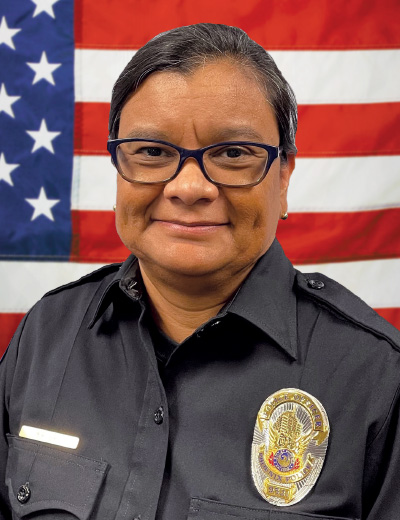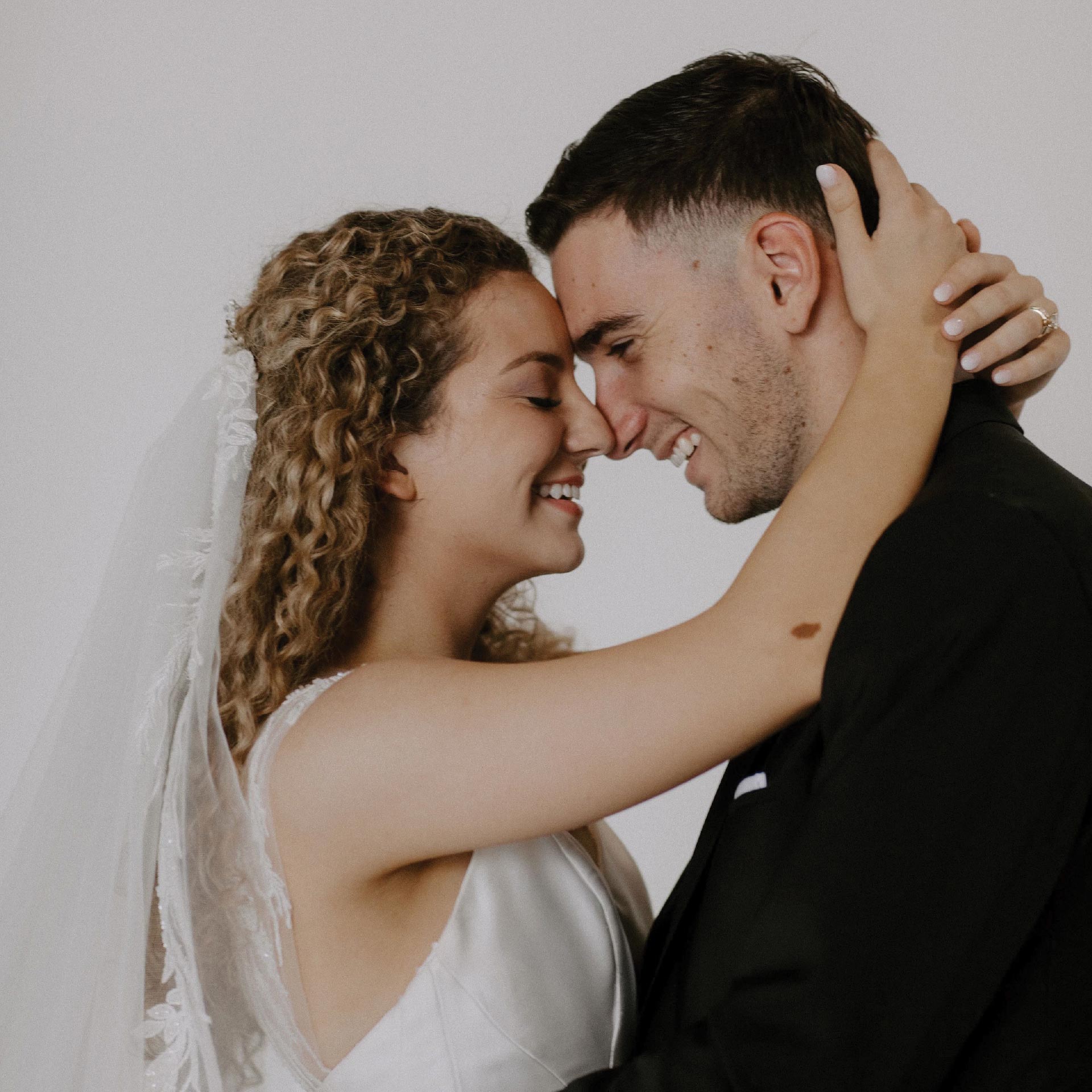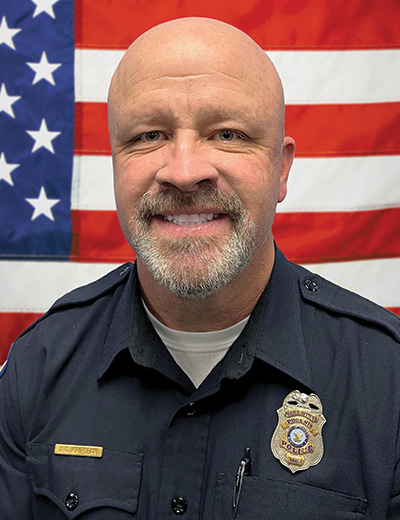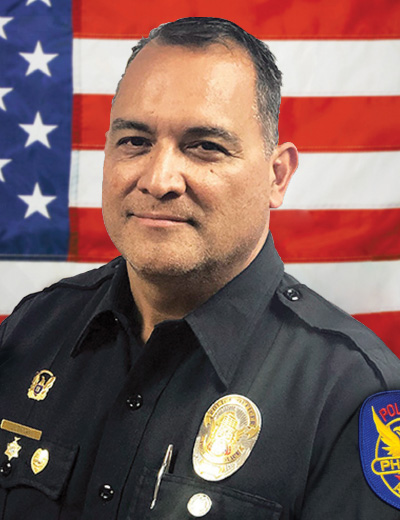Articles
Archive of articles posted to the website.

Vice President/Grievance Chair
ybro@azplea.com
We often get asked the question “What exactly does PLEA do for us?” Another question often asked is “I never get in trouble, so why do I need PLEA?” First, if you never get into any trouble or have any issues with the Department, good for you! I hope you can continue this streak. Many of your brothers and sisters on the Department aren’t so fortunate. I would like to point out that even if you don’t get into any issues with the Department, you are still benefiting from all that PLEA does for our membership behind the scenes.
The saying holds true: “If you don’t have a seat at the table, you’re probably on the menu.
This year alone, PLEA has attended over 472 meetings for the membership. We are making it clear in these meetings what our members’ needs are. The saying holds true: “If you don’t have a seat at the table, you’re probably on the menu.” These meetings are with various areas of the City that include:
- City labor management
- Police labor management
- Various citywide workgroups
- City manager meetings
- City Council meetings
- Health care task force meetings
- DCP/PEHP board meetings
- PSPRS local board meetings
- DOJ meetings
- City of Phoenix Coalition of Unions meetings
- Department staffing meetings
- Assistant chief meetings
- Human Resources meetings
Some of the issues covered in these meetings are officer rights, pay, leave benefits, light duty issues, health care and retirement issues. Our meetings with the Fourth Floor cover topics related to discipline issues, transfer issues, supervisor issues and staffing issues. This year has been exceptionally busy, as we also dealt with Human Resources regarding the comp and class study and the retention bonus. In addition, we also hold our membership and Board meetings monthly; meet with our public relations firm, Camelback Strategies; and attend meetings with community leaders. All these meetings have one goal in common: to benefit the membership. PLEA is constantly advocating for its members, which means we are always fighting for you in all aspects of your employment with the City of Phoenix.
Unfortunately, sometimes you need PLEA when discipline matters occur. This is one item near and dear to me, and I am confident in saying it is an area that PLEA excels in. It is paramount that our representatives have current and relevant training regarding Garrity, Weingarten, Brady and discipline investigations. This year, PLEA representatives have taken over 340 hours of advanced training to ensure we are providing the best representation for our members. We have assisted members in over 200 discipline investigations this year alone, and have attended the following discipline meetings:
- IRP (Investigative Review Process): 30
- Use of Force, Response to Resistance boards: 20
- Grievance meetings: 5
- Loudermill hearings: 8
- Callout to officer-involved shootings: 20
- DRB (Discipline Review Board): 6
Our reps have been successful in mitigating discipline for our members by supporting and walking officers through the discipline process. Because of PLEA’s vigorous and robust representation, many cases end in a better outcome than expected by our members. We have also saved several officers’ careers through the relationships we have built with the executive staff and City management. When we don’t get the desired decision we seek, we have fought in civil service and AZPOST hearings with the assistance of our outstanding legal team.
I would be remiss if I did not mention the hundreds of hours our Board members and reps have spent on the phone with officers, assisting in answering questions and concerns. I hope that after reviewing all that PLEA does behind the scenes, you are confident that we are a benefit to you and your career as a Phoenix police officer. I encourage members to call the office if you have any questions or concerns we can address.
By John Maxwell

I recently had the pleasure of sitting down and speaking with Tyler and Chelsea Moldovan to discuss what this past year’s journey has been. The only thing I can say is that Tyler is a fighter and never gave up that fight, and he has overcome so much in one year.
Tyler and Chelsea’s story begins with their faith and love for God. They fell in love after meeting in the church. Tyler was working for his father’s business, doing general maintenance at care facilities; Chelsea was working at a local hospital as an emergency room tech, studying to become an ER physician’s assistant. Tyler decided to enter the field of law enforcement, being supported by his family and Chelsea. His family has always been incredibly supportive of law enforcement and their role in the community, which made it an easy decision for Tyler to begin his career. He did a ride-along with Scottsdale P.D. and it was very uneventful. So he knew he was going to apply for Phoenix P.D.
Tyler was hired and started the academy. He did not find the physical portion challenging. He was physically fit and in shape, so that part was easy, but the academic portion was another story. It was more of a challenge, but he made it through, thinking the entire process would’ve been harder from what others had said. Tyler and Chelsea were engaged during the academy. He graduated from the academy in March 2021, and they were married on May 15.
Tyler’s pick for patrol was an assignment in the Desert Horizon Precinct, where he completed his field training. He then went on to the 61K squad. He became a very dedicated and passionate officer. He enjoyed policing. Some of the crimes Tyler liked to investigate were drug activity and persons under the influence. The more challenging calls, in Tyler’s opinion, were domestic violence and civil disputes.
December 14, 2021, was the day that changed Tyler and Chelsea’s lives forever. Due to ongoing criminal litigation regarding this case, details about the incident cannot be shared. Monday, December 13, began like any other day. Tyler woke up at midday, his father-in-law came over and helped him trim palm trees, and then he enjoyed dinner with Chelsea. Chelsea and Tyler both worked overnights; she began her shift at 6 p.m. and he began his at 8 p.m. They texted each other throughout the night, but they were both terribly busy. The last text they sent to each other was “I love you.”
Chelsea remembers that she was doing rounds in the ER, close to 3 a.m., when she started to receive calls from an unknown number. She ignored it at first, thinking it was spam, but they kept calling. She finally answered, and it was a police lieutenant asking Chelsea if she was at home or working. He told her that Tyler was in critical condition and had been transported to St. Joseph’s Hospital, and that a police car was being sent over to her to bring her to the hospital. She told the charge nurse that she needed to leave because Tyler was severely injured. She did not yet know how bad he was. She was picked up in the ambulance bay. On route, the I-17 freeway was closed, so they had to take surface streets all the way downtown. With so many stoplights, Chelsea said this was the longest ride of her life. The only people she called were her parents, and she did not know what to think.
Chelsea arrived at St. Joe’s and was immediately escorted into the family waiting area. She was anxiously waiting to see Tyler or to speak with a doctor and find out the extent of his injuries. It was not until two hours later, when he was being moved from the ER to ICU, that she had a chance to see him for the first time. She said she felt overwhelmed with emotion. She was glad to learn he was wearing his bulletproof vest. Tyler was shot eight times, including in the knee, left leg, right thumb, left hand and shoulder, but the most severe injury was the gunshot wound to his head. Tyler was in an upright seated position while being wheeled through the hallways, leaving Chelsea not knowing what to think. After seeing him, she was finally able to meet with the doctor. He said the prognosis was not good. Tyler was in extremely critical condition, and he asked if Tyler was an organ donor. Due to the bullet being lodged in his brain, they could not perform an MRI scan. They also needed to conduct an evaluation period and perform brain function testing. She asked to be alone with her husband for five minutes. All she could do was hold his hand and pray that he would make it through this.
The initial information that we received from the Department was that Tyler’s injuries were not survivable and we needed to prepare. PLEA immediately held a fundraising barbecue at our building. Many businesses and companies were more than willing to donate food and products on a truly short notice. US Foods donated the use of a reefer trailer to hold all the cold items. The community support was incredible. Chelsea never left Tyler’s side, so she was not able to attend, but a sizable portion of Tyler’s family did. The family stayed throughout the night and sang Christmas songs and choir hymns. This was a very moving moment for all of us.
Chelsea spent four weeks at Tyler’s bedside. She said that you find a point where you cannot cry anymore and all she could do was pray. Tyler started to move his fingers and open his eyes; this was very unexpected and an unbelievable feeling for her. She said that she never lost hope and that he was not going to leave her. During the time of the injury, Tyler suffered a stroke, leaving his right side severely affected in motor function. He would later regain function on the right side of his body.
Tyler spent almost seven weeks in the ICU, until he moved to Craig Hospital in Colorado on January 24, 2022. He slowly started to respond to stimuli and testing from the doctors. His recovery and therapy processes had fully begun.
Fast-forward to March; Tyler said that this was when he came to understand that his injuries were real. He faced various emotions, denial being the biggest one to overcome. He said that he used determination after that to aid in his recovery.
Tyler would stay at Craig Hospital for almost four and a half months. He passed several milestones along the way. April 22 was the first time he was able to leave the hospital for the day. Tyler wanted to go to Cabela’s and bought two things, a T-shirt and 100 rounds of .556 ammunition. In May, he stood on his own. In June he was removed from the ventilator, and on June 2 he returned home to a large police showing and community support lining the street near the airport. July 4 was his first holiday at home. On August 1, his trach tube was removed. On October 9, Chelsea and Tyler enjoyed a day on the boat at Lake Pleasant.
Tyler, you are truly a miracle story and physical proof of a warrior. You are an inspiration to all of us. Chelsea, your strength and prayers were heard. You made many sacrifices, and you are the rock to Tyler. Thank you for sharing your journey with us.
Chelsea Moldovan: “You can find peace, comfort, love and hope, even if it’s far away.”
Tyler Moldovan: “Don’t stop fighting.”
 About 280 law enforcement members and supporters from throughout the state gathered at the Pointe Hilton Tapatio Cliffs Resort on October 1 for the 2022 Police Officers’ Ball benefiting PLEA Charities. This year’s gala kicked off with an expanded “cocktail hour and a half” with the opportunity to pose for photos next to a new police Chevy Tahoe as well as a vintage cop car. In addition to bidding on silent auction items, attendees welcomed the return of “mystery boxes,” a popular feature last seen at the 2019 Ball, which could be purchased for $40 and contained surprise items ranging in value from $40 to $200. The boxes sold out, as did the new “Bourbon, Bubbly and Beyond” wall, which offered attendees the chance to try their luck by buying wrapped packages for $20 that contained bottles of wine, bourbon or other liquors worth anywhere from $20 to $200.
About 280 law enforcement members and supporters from throughout the state gathered at the Pointe Hilton Tapatio Cliffs Resort on October 1 for the 2022 Police Officers’ Ball benefiting PLEA Charities. This year’s gala kicked off with an expanded “cocktail hour and a half” with the opportunity to pose for photos next to a new police Chevy Tahoe as well as a vintage cop car. In addition to bidding on silent auction items, attendees welcomed the return of “mystery boxes,” a popular feature last seen at the 2019 Ball, which could be purchased for $40 and contained surprise items ranging in value from $40 to $200. The boxes sold out, as did the new “Bourbon, Bubbly and Beyond” wall, which offered attendees the chance to try their luck by buying wrapped packages for $20 that contained bottles of wine, bourbon or other liquors worth anywhere from $20 to $200.
The delicious three-course dinner was followed by a live auction for three firearms, with retired Sergeant Tommy Thompson, a 37-year veteran of the Phoenix P.D., doing the honors as auctioneer. Next up were live music, dancing and professional casino gaming — another new element of this year’s event that kept the fun going all the way until the 11 p.m. closing time. Each guest received a $250 voucher to play with at the six blackjack and two roulette tables, and additional vouchers could be purchased for $50 apiece. At the end of the evening, attendees could cash in each of their $50 chips for a ticket giving them the chance to win their choice of one of three great prizes. The winners of the prize drawings were announced in a PLEA Charities Facebook livestream the following week.
Special thanks to the committee members who helped put this amazing event together, including decorating the venue to ensure this year’s Ball was the most glamorous to date:
- Claudia Abril
- Hillary Hancock
- Ashley Kidd
- Kalie Lindmark
- John Maxwell
- Haili McCance
- Dani Pomeroy
- Santos Robles
- Amber Ruiz
- Haley Schuster
- Ada Smith
- Whitney Stevenson
- Mike Thomas
All proceeds from the Police Officers’ Ball support PLEA Charities’ mission of helping police and caring for the community through programs including the Back to School Drive, the Phoenix Police Cadet Scholarship and Shop With a Cop.

President
dkriplean@azplea.com
I think we can all agree that being a police officer with the Phoenix Police Department is challenging these days. The manpower crisis we find ourselves in, a DOJ investigation, the unrest in the chief’s office and the ever-increasing workload officers and detectives find themselves facing is unprecedented. Never in my time as a Phoenix police officer can I remember there being so many issues all at the same time.
I’ll start with the DOJ. There has been communication from the city manager’s office indicating that DOJ involvement in our Department is a positive thing. They tout that there will be increased training and equipment provided to the officers and detectives. While that may be true, there are massive changes that will also be put in place. I have been in contact with several organizations that represent officers from many jurisdictions that have currently or have had DOJ involvement. Everything from regular interaction with citizens to uses of force on violent suspects will be dissected by multiple entities. Paperwork and documentation will be absolutely mind boggling and will bog down an already arduous process. Internal investigations will skyrocket for the most routine of things that are now handled via blue teams.
The longer the decree is in place, the longer the monitor has a job. Tens of millions of dollars are at stake.
Financially, the costs associated with consent decrees have crippled cities and their police departments. The third-party monitors put in place to oversee the consent decrees have no interest in seeing a department come into “compliance” quickly. The longer the decree is in place, the longer the monitor has a job. Tens of millions of dollars are at stake.
The burdens and scrutiny placed on line-level sergeants and lieutenants tend to be immense. If an officer or detective makes a mistake or commits what is perceived as misconduct, the supervisors are held to answer as to why they did not foresee the action taking place. The paperwork thrust upon supervisors might make you think twice about promoting.
In addition, there has not been one community that hasn’t seen an immediate increase in violent crime upon the implementation of a consent decree. The city of Phoenix is already on pace to set a homicide record. At the time of this writing, we have already experienced 133 homicides — a 21% increase from last year. In addition, 294 citizens have been wounded by gunfire in the first six months of 2022. I suspect this is just a glimpse of what is to come once the criminal element within our community knows that police officers and detectives are burdened with a heaping amount of paperwork that prevents good proactive police work.
On the topic of leadership: These days, it is unclear who is running the Department. I have been told that all operational decisions have to be approved by Assistant City Manager Lori Bays. If accurate, this should concern everyone in this Department and everyone in the community. I would be curious to hear what qualifies Bays, short of her job title, to run the police department in the nation’s fifth-largest city.
When Chief Williams announced her retirement earlier this year, the city manager almost immediately announced that he would be searching for an interim chief from outside the Department. I reached out to Jeff and expressed concern over an outside candidate.
It wasn’t that long ago that we had this occur with the infamous Daniel Garcia. For those of you who weren’t around during the DVG era, I will tell you his leadership style left a lot to be desired. There are plenty of us left who remember this time in our Department’s history and don’t want to take a chance of a repeat performance with someone new. Jeff told us that he was looking for someone who had DOJ experience and did not want to be the police chief permanently. He told us that it was for somewhere between 18–24 months. I mentioned to him that I knew of someone who fit within those parameters. Someone who had been in Phoenix police leadership prior to going to a new agency. Someone who had a love for the Department but was so happy in their current position that they would not want to be the permanent chief.
It was at this time a new criterion was expressed. The candidate could not have ever worked for the Phoenix Police Department. The rationale for this was if there was a need for an executive to be disciplined, he did not want any personal relationships to interfere.
I expressed to Jeff that we (PLEA) would like to be involved in the process as we have several partnerships and contacts around the country with police labor representatives and have the ability to hear how a person truly is as a leader that isn’t necessarily depicted in a resume. Jeff told me that he would give us the name once it is determined prior to a public announcement. It was apparent that the city manager and the assistant city manager did not want anyone involved in this process to find our next leader. As the labor organization that represents the largest number of sworn employees, you would think they would welcome our involvement.
Not only did he not want our involvement, he did not want the citizens involved either. Several individuals from the community we serve wanted to be involved in this process as well since it directly affects them. Many of these citizens are leaders within the community and represent large numbers of residents. Jeff was sent emails supporting an internal police department pick for interim chief. In those emails, community leaders asked to be involved. They were routinely rebuked and told their input was appreciated but assured them that they were going to make the decision keeping in mind the best interests of the Department and the community.
Fast forward to July 29 at 1025. Assistant City Manager Lori Bays called and informed me that she and Jeff had made a decision regarding the interim police chief and were getting ready to announce it publicly. This was approximately 10 or so minutes before the employee notification was sent out. Immediately, our membership and the media were reaching out for information and inquiring as to why we hadn’t released any information on the newly announced police chief. They were all informed that we had only just obtained the information and did not have anything to report.
Many questions have come up since the announcement. The biggest question is, why wouldn’t city leadership want to collaborate with the community or PLEA for such an important decision? There are at least four different labor organizations that represent employees that are directly impacted by this decision. To my knowledge, not one of them was contacted to provide input. It’s hard to believe Jeff and Lori wouldn’t want the input of the elected representatives of the employees. What about the community? In a time of “transparency,” this decision was made behind closed doors.
I do not know Michael Sullivan. This is absolutely not about him but the process that took place to identify him as our interim chief. For all I know, Sullivan might be one of the best chiefs Phoenix has ever had, and for our sake, I hope he is! He has some pretty big shoes to fill, considering some of our past chiefs.
I am concerned, as I think many others are as well, that moving forward, this exclusionary policy may become standard practice for the city manager’s office. And while I have been assured that PLEA and the community will be involved in the search for a permanent chief, being excluded from this huge decision of picking an interim chief does create concern. I hope that I am wrong.
In spite of all of the turmoil we are in the midst of, there have been numerous examples of outstanding police work being done by the men and women of this Department. The officers and detectives we all work with and around have continued to be consummate professionals and have not waivered in the commitment to the community we serve. Keep up the good work!
As always, if you have any questions or comments, I can be reached at the PLEA office or at dkriplean@azplea.com.

Trustee
srobles@azplea.com
In my 24-year career with the city of Phoenix, I have been subjected to investigations that could have sidetracked my career. I can say that during my career, I have been part of the old way of doing things to an evolution of public safety today, which has painted us with a broad brush because of the wrongdoing of a few. I was in the patrol division for most of my career but have recently taken a position at the PLEA office as full-time release.
My experiences in both the old culture and new culture of police work have led me to realize that, today, career preservation must be a topic of interest. My idea of career preservation comes from not only my experience on the street but my representation experience. I have represented hundreds of officers for a myriad of policy violations, officer-involved shootings, the investigative review process, discipline review process, use-of-force boards and Loudermill hearings.
Even after all of these things, every officer would say, “I have learned from my mistakes.” Some of us have received discipline, and those people still move forward and have very successful careers. To put things into perspective, I have been subjected to a long-term internal investigation, industrial medical injuries and survived multiple police chiefs and changes in management that have changed this Department. I am letting you know that your career is most important; do something to preserve it.
My experiences in both old culture and new culture of police work have led me to realize that today, career preservation must be a topic of interest.
One of the easiest and most effective ways to preserve yourself and have a solid response to any complaint is to make sure your body-worn camera is on, per policy. Sometimes, the videos can be long, but they will prove your actions were correct at the time of the incident. Please do not get into the habit of turning off your camera prior to the finish of a contact or an arrest. No one will give you the benefit of the doubt if your camera is off. If your camera is not on, and a witness, business camera system or private company captures an incident that does not pass the headline test, it is harder to disprove wrongdoing. Be mindful of what you say or do when around other officers because they may have their cameras activated, even if the call for service is complete.
The second point I want to make is that omission, deviation or minimizing could be considered untruthful during an investigation. If you do not recall a specific detail, do not try and fill in the blank with a guess. The investigation will continue, and you will be compelled to answer any questions, but lying or untruthful statements make it very difficult for the representative to pursue the benefit of the doubt.
Please know that fact-finding interviews are not allowed at any point. If you feel that questioning could lead to discipline, then you have the right to representation, and we are available 24 hours a day on standby to assist you. In a respectful way, you may ask your supervisor, “Do these questions have to do with a policy violation?” To make things easier, if you get served with an NOI, call us to assist you.
Health and welfare: Please do not advise on calls, no matter how minimal the type of call is. You never know what will happen. We have time on our side when responding. Please use all of your resources that you have available. Your goal every night is to go home to the folks who love you. Resources exist for issues with post-traumatic stress disorder, domestic issues and alcoholism. Do not self-medicate, and you can always call the employee wellness bureau or PLEA to speak to someone. We take employee wellness seriously and do what we can to help support you.
Remember, you are protected by Title 38 of Arizona Revised Statutes, Police Officer Bill of Rights and our MOU, the Unit Member Rights. The things I have pointed out are from my experience and the outcomes when pertaining to integrity, policy violations and discipline handed out for those violations. Be safe, and contact us at the PLEA office if you need assistance.
By Dan Willis

Every officer is vulnerable to potentially experiencing severe distress and suffering caused by an accumulation of daily work traumas. With increased understanding of the nature of trauma, support and effective wellness mechanisms within police agencies, officers (and dispatchers) can heal and ultimately experience post-traumatic growth — recovery and positive transformation after experiencing trauma.
Sergeant Tim Purdy (La Mesa, CA): A Career of Trauma
During Tim Purdy’s 12 years as a patrol and SWAT officer, he had experienced not only the slow drip of daily work traumas, but also several significant critical incidents.
Then the critical incident occurred that caused Purdy’s entire life to slowly spiral out of control. Officers responded in the middle of the night to frantic calls of a man chasing his wife and two children through the neighborhood with a shotgun threatening to kill them.
When Purdy and the other officers confronted the gunman, he racked a round into his shotgun and pointed it directly at the officers, who all fired multiple rounds, killing the man instantly.
The Crisis
The trauma of that night, along with all the other traumas of the past 12 years, significantly injured Purdy’s brain and its ability to function normally. Over the next few months, he became increasingly distant, isolated and depressed. Eventually he became emotionally dead inside, unable to feel much of anything other than anxieties, panic and depression. He became tormented by uncontrollable emotions and terribly distressing, intrusive thoughts and images. His marriage began to deteriorate.
Then the day after Christmas, Purdy arrived home from work and discovered his wife had moved out of the house without any notice. He had already experienced suicidal thoughts, and this shock literally brought him to his knees.
In his great grief and hopeless despair, all Purdy could think about was ending his life. He couldn’t see any path forward to recover and heal, and he had no idea what to do in that moment. He was distraught over all that he could have and should have done before he reached this desperate and hopeless place.
However, in that worst moment of his life, Purdy realized that killing himself would only result in others suffering his loss. He courageously called a peer support officer from his agency. That officer, who was off duty, came to his house within 20 minutes and spent the night with him. That selfless gesture of compassion literally saved Purdy’s life.
Purdy continued to struggle and eventually sought help from a trauma professional. Peer support officers routinely continued to check in with Purdy and offer their comfort and support.
The Recovery
Purdy’s agency sent him to a trauma professional who was certified in eye movement desensitization and reprocessing, or EMDR. There are EMDR trauma professionals in nearly every community throughout the country and they are specialists in trauma recovery and healing (see emdria.org for more information).
In Purdy’s own words: “This was one of the best gifts I have ever been given. It was an incredible, lifesaving experience. In just a few sessions over a relatively short period of time, EMDR helped me to finally heal from my severe and debilitating internal injuries, which had plagued me for over three years. It helped me to get unstuck, to reboot my brain and to disassociate myself from all the horrible thoughts and emotions attached to my trauma experience memories, so that I could once again be normal and have my mind function properly.
“EMDR enabled me to file away in my mind a lot of things and to put them into their proper perspective so that they no longer crippled me. I didn’t forget the memories, but I can now think about them and talk about them without suffering any negative or debilitating effects.
“Eventually, I was fully back to loving my life again. I could never have made it without the people who cared for and helped me — the kind and compassionate fellow officers who came to my aid. The department’s peer support team and our police psychologist saved me, and I was once again able to stand up and love the amazing thing we call life.
“The most important thing I learned is that without good, caring people who will stop and offer emotional support for someone in a time of hurt or loss, the world would have many more terrible tragedies, suicides and desperate people. I am living proof of that.
“You can heal from trauma with treatments such as EMDR and with the caring help and support from others. You can be that lifesaving support for the brothers and sisters you serve with. You do not have to suffer endlessly.
“Post-traumatic stress injuries do not just go away with time unless you do something helpful to recover. Reach out, get help and find ways to regain your life. There was that time when I thought it impossible for life to get better. I love life and work now more than ever. So can you.”
Questions to Enhance Your Survival
How familiar are you with the resources available to you through your agency, peer support, chaplain, EAP and community? Does your life partner know of these resources as well?
Talk with someone in your wellness unit or on your peer support team, or someone in a position to know, regarding all the resources available to you and your loved ones. Make a list of these resources and make a plan with your partner for how to use them when needed.
Conclusion
When an officer has hope, they have everything. Police agencies’ mechanisms for wellness and recovery, peer support teams, chaplains and caring support from managers and colleagues can provide that hope. There are effective ways to recover and heal from trauma if we, as leaders, help show the way.
Editor’s note: The following article is a reprint from the September issue of American Police Beat.
About the Author
Captain Dan Willis (ret.) served for 30 years with the La Mesa Police Department in California and now travels the country as an international instructor on police trauma and ways to heal. He is the author of the emotional survival and wellness guidebook Bulletproof Spirit: The First Responder’s Essential Resource for Protecting and Healing Mind and Heart, which is required reading at the FBI National Academy. Visit FirstResponderWellness.com for more information.
